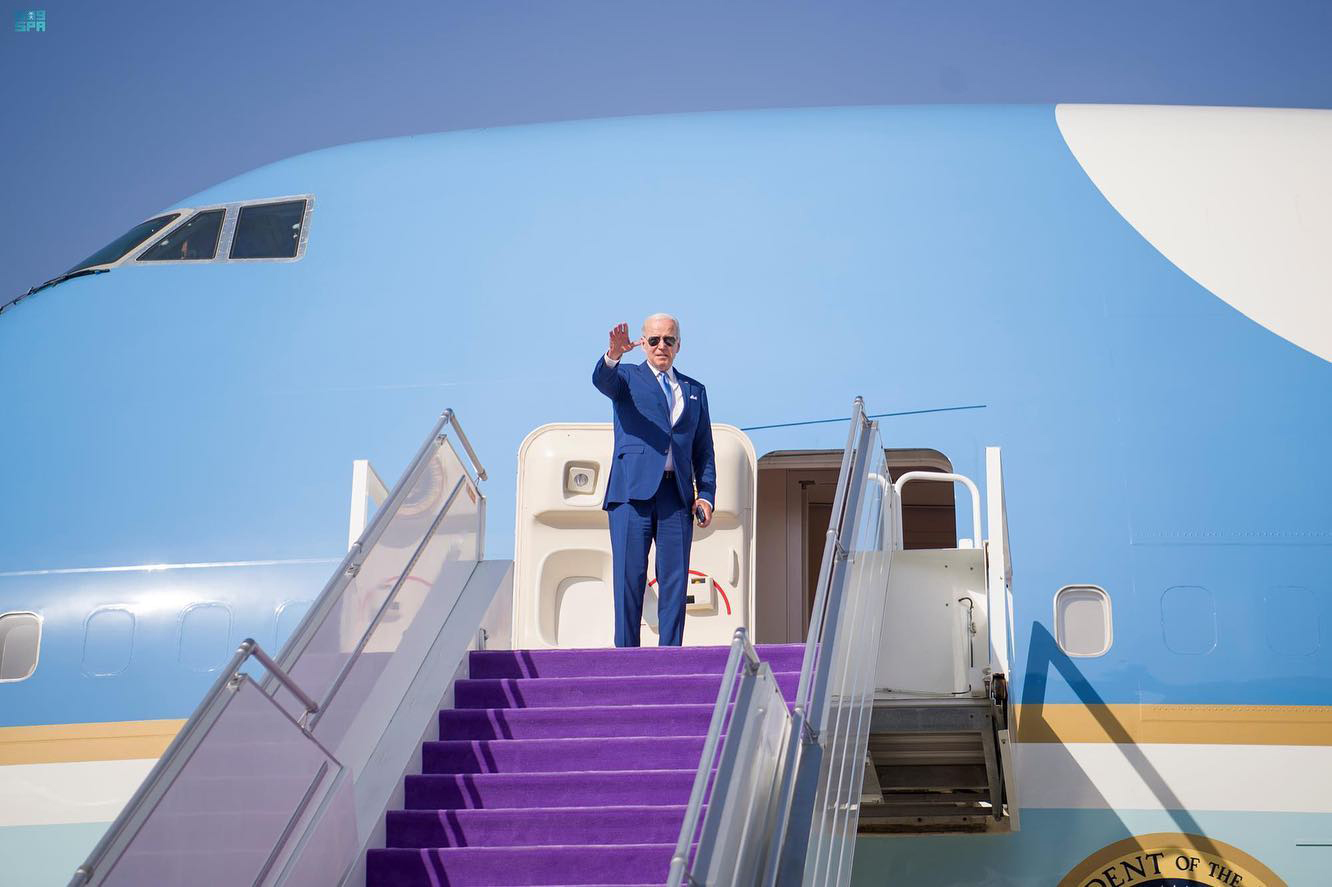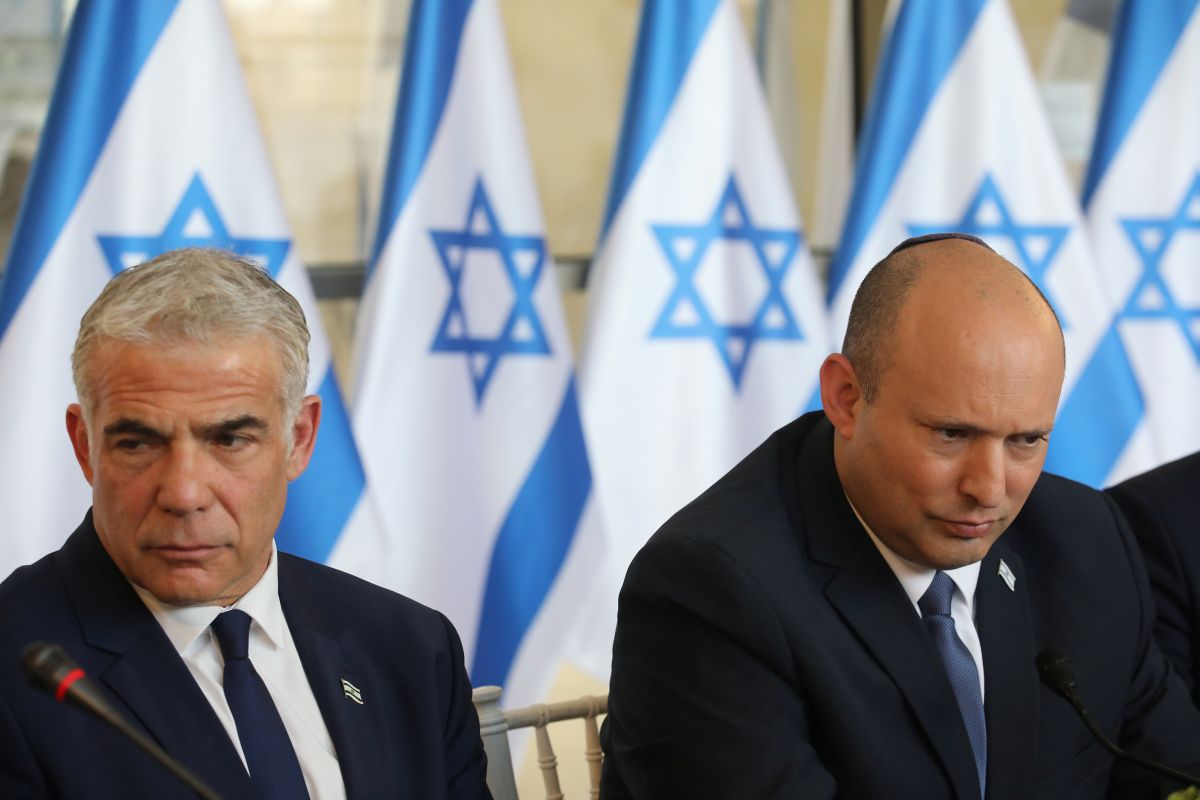Biden's First Visit to the Middle East
On 13-16 July, U.S. President Joe Biden visited Israel, the Palestinian Authority (PA), and Saudi Arabia. The main aim of his visit was to assure U.S. allies that it will continue to engage in security issues in the Middle East and to encourage them to give greater support for U.S. policy towards regional and global challenges.
 Saudi Press Agency/ Zuma Press/ FORUM
Saudi Press Agency/ Zuma Press/ FORUM
What is the context of the presidential visit?
Biden’s visit to the Middle East was part of the U.S. efforts to strengthen cooperation in the region, including between Arab states and Israel. States in the region are critical of Biden administration policy, which according to them aims to limit U.S. involvement in Middle East security. Therefore, one of the most important aspects of the talks was Iran, which Israel and the Arab states of the Persian Gulf perceive as a strategic threat. The meeting with Israeli and Saudi officials was supposed to improve the image of the U.S. as a reliable partner. Biden also went counting on support from Middle East states in the face of Russian aggression against Ukraine, including obtaining a Saudi commitment to increase oil production. In this context, the U.S. announced greater involvement in countering effects of the Russia-Ukraine war on the Middle East, including by ensuring food security in the region. The visit also provided support for the Israeli “government of change” led by Yair Lapid, who is engaged in an election campaign.
What was Biden’s focus in Israel and the PA?
U.S. and Israeli leaders signed the “Jerusalem Declaration” emphasising the common interests of both countries. The main difference remains the issue of the Iranian nuclear programme. Although Biden confirmed the possibility of stopping it by force, the diplomatic path remains the priority for the U.S. The American administration also supports Israeli regional cooperation. During the visit, the U.S. president and Israeli PM held a meeting with the leaders of the UAE and India focused on food security and other issues. At the same time, Biden emphasised the need to continue work towards a two-state solution, although he admitted that the chances of reactivating peace negotiations are small. Biden also promoted the restoration of American aid (including financial) to the Palestinians, but no new diplomatic initiatives or a withdrawal from Trump administration decisions were announced during his visit to the PA.
What controversies arose during Biden’s visit to Saudi Arabia?
During the election campaign, Biden declared the end of the United States’ unconditional support for Saudi Arabia, unlike the policy during the presidency of Donald Trump, and that the new administration would treat it as a “pariah” for its human rights violations, the Saudis' involvement in the conflict in Yemen, and evidence of Crown Prince Muhammad bin Salman’s involvement in the 2018 murder of journalist Jamal Khashoggi, then a U.S. legal resident employed by the Washington Post. Up to this week, Biden had avoided talks with the de facto ruler of Saudi Arabia; however, the escalation of tensions between Iran and the Gulf states in January and the potential role of Saudi Arabia in diversifying the sources of oil imported to the EU in view of the suspension of imports from Russia contributed to a change of approach, which sparked anger among Democratic politicians and voters. The Saudi leader made his distrust of the Biden administration clear, as the U.S. president was welcomed by the governor of Mecca at the Jeddah airport instead of the crown prince. During Biden’s stay in the Kingdom, he also took part in the GCC+3 conference (Gulf Cooperation Council countries, Jordan, Egypt and Iraq), which allowed him to meet a wider group of regional leaders.
What are the most important decisions made during the visit?
Biden announced that the U.S. will donate $1 billion to support food security in the Middle East. The president also signed several investment agreements with Saudi Arabia, including in cybersecurity and technology (5G/6G, which will compete with Chinese solutions). The U.S. president also commented positively on the Saudis’ role in promoting increased production, which allowed OPEC+ countries to agree to higher output in July and August this year. However, the attitude of the Saudi authorities indicates that they will try to link these decisions with additional concessions from the U.S. and the EU. There also was no announcement of a new regional security initiative for the Persian Gulf.
Although Saudi Arabia denies that it aims to normalise relations with Israel before the Israeli-Palestinian conflict is resolved, Biden’s visit ended in progress towards establishing official relations between the two states. Israel formally approved the takeover by Saudi Arabia of two strategic islands (Tiran and Saffir) in the Red Sea, while the Saudis announced they will open their airspace to passenger flights from Israel. The Biden administration, however, will not actively seek to resume the Israeli-Palestinian peace process, focusing on ad hoc diplomatic efforts and financial support to the PA. As part of the latter, Biden announced a donation of $100 million for the East Jerusalem Hospitals Network (six facilities in total). Qatar, the United Arab Emirates, Kuwait and Saudi Arabia joined the initiative, thanks to which the total support will amount to $200 million.




_sm.jpg)
_sm.jpg)
